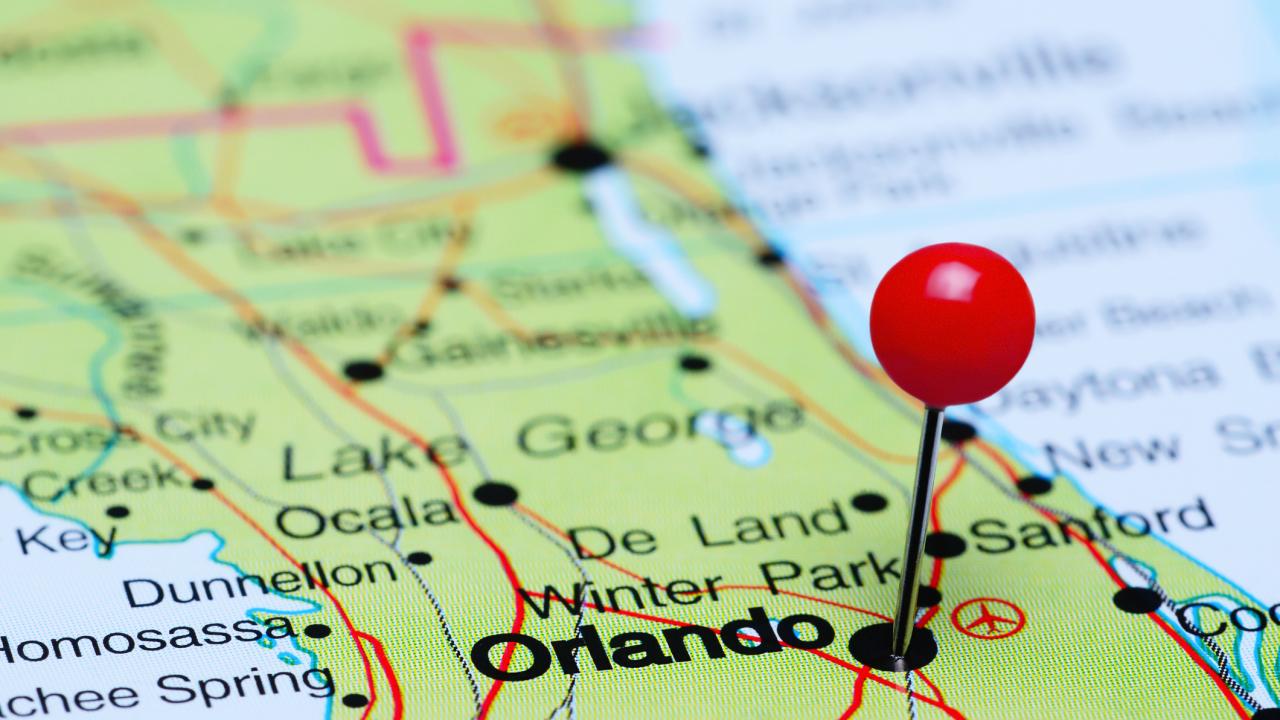Puerto Ricans living in Florida, the largest swing state in the country, are mostly supportive of undocumented immigrants, a political attitude that might have broader social and political implications than political candidates and policymakers realize, suggests a University of California, Davis, study.
The study contributes to immigration, race and Latino scholarship by uncovering the nuance and complexity of Latinos’ contemporary politics, specifically looking at the 2016 presidential election, said the study’s author, Ariana J. Valle, assistant professor of sociology.
The study, “‘He begins by targeting Mexicans and he will end with Puerto Ricans:’ unpacking Florida Puerto Ricans’ politics of immigration,” was published last month in the journal Ethnic and Racial Studies.
Interviews with Florida Puerto Ricans
The study draws on 75 in-depth interviews of Florida Puerto Ricans Valle conducted in Orlando, Florida, during the 2016 presidential election period from July 2015 to February 2016.
“This analysis provides unique insight into how Puerto Ricans in Central Florida think about the immigration debate, and the experiences, conditions, and social forces that influence how they formulate their political views and political choices,” said Valle, a Latina and Spanish speaker, who conducted the interviews in Spanish, English and “Spanglish.”
While politics in the state has largely been historically conservative, it is home to the third-largest Latino electorate in the United States, or 3.1 million people (still far behind California and Texas). Even as migration from Puerto Rico to Florida grows — making them second to Cuban Latinos in that state and the largest collection of Puerto Ricans in any U.S. state — Puerto Ricans are a largely overlooked Latino subset. Their voting records and political attitudes in Florida are not well studied, either, since their homeland is a U.S. territory that lacks federal voting representation. Additionally, Puerto Rican communities, historically, are in the Northeast United States, Valle said in her study.
In Valle’s interviews, she found that most respondents, or 67, expressed support for undocumented immigration, including providing a pathway to legalization and citizenship. A common theme emerged, in that those participating in the interview said they felt most immigrants deserved legal status based partly on their material contributions to the United States as workers, consumers and taxpayers, their work ethic, and the worthiness of families. And, 40% of respondents reported immigration as a top 2016 election issue.
One native Puerto Rican and 10-year Orlando resident expressed it this way, referring to Mexican immigrants he knew and worked with in construction:
“I have friends who have citizen children but they’re not [citizens], I think it would be fair to give them the privilege of belonging to the U.S. … My friends have been sent back to their countries of origin and their families have stayed in the U.S., we collected donations for family members that stayed behind because they lost the breadwinner.”
In regard to voting, a Puerto Rican-born truck driver and 10-year Orlando resident said: “Yes, yes, I have to vote,” in the presidential election. He added not voting was equivalent to “turning my back on Mexican and Cuban Brothers.”
He elaborated: “[Donald Trump] says he wants to build a wall so that they don’t enter, why? They’re the ones feeding you … Mexicans are working the fields … and Puerto Ricans are also in the fields. Why does he have to target them? It’s inconceivable, inhumane.”
Valle found a second important theme that explains Puerto Ricans’ support for undocumented immigration is the coalescing of Latino group belonging, identity and solidarity cultivated by Puerto Ricans’ perception of common migrant experiences with Latin American immigrants and a shared sense of vulnerability in the anti-immigrant/anti-Latino sociopolitical climate of the time. For example, a Puerto Rican-born/raised respondent and two-year Orlando resident expressed the most important 2016 election issue was:
“Number one, immigration … the discrimination towards and abuse of Mexicans, Guatemalans, Salvadorans, Peruvians, everyone … it will affect us Puerto Ricans due to Donald Trump’s stupid comments. He is against Mexicans, but it will affect us, he is a Republican, he is racist … He begins by targeting Mexicans and he will end with Puerto Ricans … today he focuses on Mexicans, he will continue with Colombians, with all of us who are immigrants.”
In contrast, four of the respondents expressed a different attitude about immigration. A Puerto Rican-born retiree and 24-year resident of Florida expressed that she felt too many Mexican immigrants send their money back to Mexico.
Nearly 70% of the people interviewed were long-term residents (10 years or more of Florida residency); and about 30% of respondents arrived more recently within the last five years, Valle said. The sample is evenly divided between respondents with a college degree or more and those that completed some college or less.
About a third of respondents are employed in professions that require a college or advanced degree (such as professional and management; education, health, and social services); 37% are employed in sales, services and manufacturing; and 30% were either unemployed or not working.
“This study has important implications for how we understand Latinidad and contemporary Latino politics in the largest swing state of the U.S.,” said Valle.
Media Resources
Media Contacts:
- Karen Nikos-Rose, News and Media Relations, 530-219-5472, kmnikos@ucdavis.edu
- Ariana J. Valle, Sociology, ajvalle@ucdavis.edu
Professor Valle is available for interviews in Spanish.
